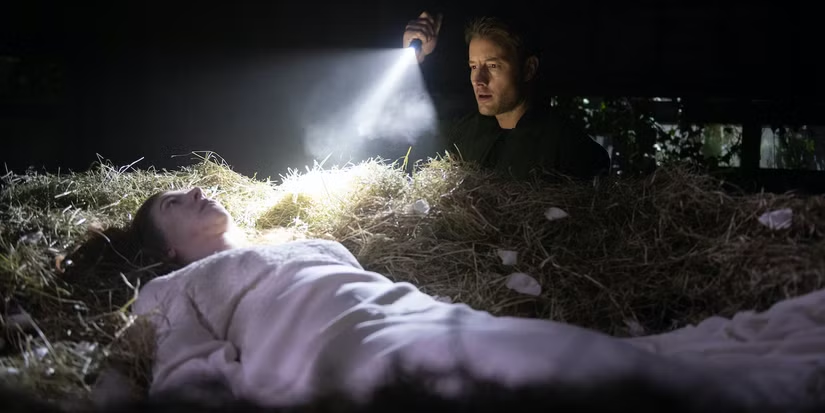
The truth is, many episodes of Tracker are borderline horror stories. The entire Season 2 arc surrounding the abduction of Gina Pickett (Lina Lecompte) by the serial killer known as “The Teacher” (Nicholas Lea), which comes to a head in “The Disciple,” feels like a dark mix between a Silence of the Lambs-inspired psychological thriller and a straight-up horror story. Including villains like Peter Storemare’s Valtz character or The Teacher into the Tracker canon opens the door for far more horrific possibilities in the future. Possibilities that, frankly, deserve to be explored more regularly.
Given that many who have disappeared without a trace could be said to have been kidnapped or worse, the real-world terrors that Colter encounters almost daily would naturally explore the darker side of human nature. For Tracker to ignore that would be disingenuous, so to lean in further and dive into those stories is the only natural conclusion.
Horror is a genre that has the unique ability to explore the darkest aspects of humanity while saying something meaningful about them. Admittedly, not every horror flick does just that (and certainly other genres have this ability as well), but the way that Tracker frames these tales, there is always a choice for someone to succumb to that darkness or to reject it.
In the case of “The Mercy Seat,” what makes this Tracker hour so compelling isn’t simply the unbalanced mountain family who torture and abuse their victims, but Amelia’s part in it as an unwilling participant who chooses to reject those she has been stuck with for nearly a decade. It’s a harrowing picture that Tracker paints here, but one that it manages to do quite well, offering Colter Shaw as a sort of salvation for those who would be swallowed up by the world’s evils. The balance that Tracker can bring to these horror tales — emphasizing the darkness while simultaneously highlighting Colter’s capacity for good — is really what makes episodes like these work.

Of course, Tracker isn’t the only show to have done this. Other procedurals like Criminal Minds and The X-Files have certainly wandered into straight-up horror territory over the years. One might even consider Bones’ serial killer story something out of a psychological horror, despite airing on network television. Though Tracker does not deal exclusively with these terrifying aspects of reality, whenever it does, we can’t help but walk away feeling as if we’ve seen a glimpse at something truly evil, something that could just as easily lurk around the corner. Thankfully, there is far more to Tracker than these standalone horror episodes, even if we would like a few more of them next season.
‘Tracker’ Shouldn’t Be a Straight-Up Horror Show, but It Should Continue To Push the Boundaries. All this to be said, as much as we want Tracker to continue exploring these standalone horror stories (because standalone adventures are what this show does best), the show should never limit itself to simply this genre. Stories like “Ontological Shock” or “Neptune,” which delve into government conspiracies and espionage, wouldn’t be possible if Tracker were a horror-only show, nor would organized crime-related tales like “Shades of Gray” or “Out of the Past.” In fact, the entire mythology of the show, surrounding Colter’s mysterious past and whatever occurred the night his father died, strays distinctly from classic horror fare.